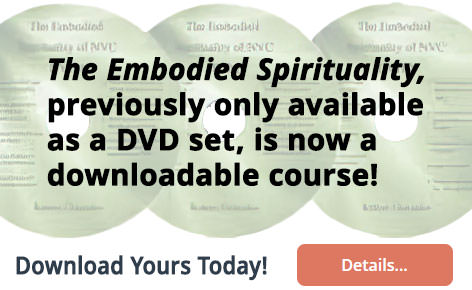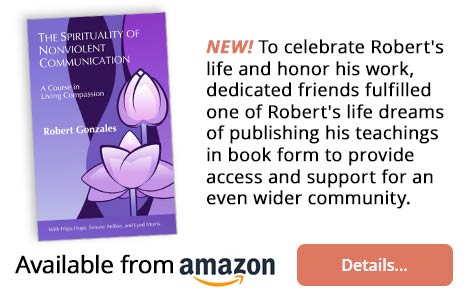

Welcome to the Robert Gonzales Training Legacy. Here you can learn more about Robert and the powerful teachings he dedicated his life to. NVC Academy is proud to house and share with you the complete body of his life's work. We invite you to explore, learn, and help keep his legacy alive!
Robert's passion was in the spirituality of the Nonviolent Communication (NVC) process. He saw NVC both as a process that helps people connect more authentically with themselves and others, and as a spiritual practice and way of living. The worldwide NVC community mourned when Robert died in 2021. He left behind a legacy of work that emerged from a lifetime of inquiry into the intersection between spirituality and human communication. More about Robert.
Article
4-6 minutes
To tell the difference between empathy and investigation, watch for distinctions along four different dimensions: energy, subject, intention and trust. These distinctions can help us engage awareness and skill to meet your needs and respond to others’ needs in more direct ways. The more you meet your needs in conscious and direct ways, the more present you can be for others. Read on for more about how to do this.
Details...Article
5 - 8 minutes
Is it dangerous for large numbers of people to be absorbing disturbing news alone? Given the intensity of our times, making choices based on conscious awareness and discernment in relation to current events is essential for our ability to stay engaged, and to also wisely meet our collective challenges with agency and power. Here are five tips for how to help stay sane in relation to the news cycle.
Details...Article
9 - 13 minutes
Unless we change our collective ways on the planet, we will one day exceed the earth’s carrying capacity. We can only address the planet's very real limits of physical resources at the level of social organization. To operate empathically is to adjust our collective social order and patterns so that resources are more widely available and everyone's needs are met no matter what their output, income, power, circumstances, etc. Can we envision a future where the system is infused with this level of empathy, before it's too late?
Details...Trainer Tip
1 - 2 minutes
Trainer Tip: When we acknowledge our met needs, rather than labeling the other person as good or bad, we achieve a clarity of mind that deepens our connection to ourselves and other people.
Details...Article
4 - 6 minutes
Sometimes we want to avoid placing our love and trust in someone, to protect our hearts and our life energies. And so there are deeper questions that we can use to check whether we're in relationship with someone who doesn't have capacity to be in relationship with us (eg. “Do I have a sense of mattering in this relationship?”). Read on for more questions we use to assess our empathy and efforts in relationships.
Details...Article
2 - 3 minutes
Here are some guidelines and agreements for creating empathy buddy sessions. Includes a list of blocks to empathy.
Details...Article
11 - 16 minutes
When we are transparent about our concerns, brainstorm solutions together, and look towards making a decision with the other person, we can increase understanding, partnership, and mutual support. This invites people to work on the same issue from the same direction, collaboratively seek solutions, and tap a deeper wisdom. In the end, the future survival of our species depends on this kind of active interdependence.
Details...Trainer Tip
1 - 2 minutes
Trainer Tip: When someone acts in baffling ways we can either wonder about what’s going on with the other person, create our own stories about it (blame, resent, make assumptions), or inform ourselves by asking. This is an opportunity to learn something new.
Details...Learning Tool
1 - 2 minutes
Print-and-cut these 56 feelings cards for one-on-one, partner or group activities, to help support the pratice of empathy. Includes eight blank cards for you to customize.
Details...Trainer Tip
2 - 3 minutes
During the holiday season we may find ourselves taking responsibility for other's feelings, which can lead to guilt, shame, depression, and resentment. These feelings are exacerbated by the habitual pattern we call the "Vortex of Submission" (being hooked by a sense of duty and obligation). Read on for ways to recognize and break the pattern.
Details...

